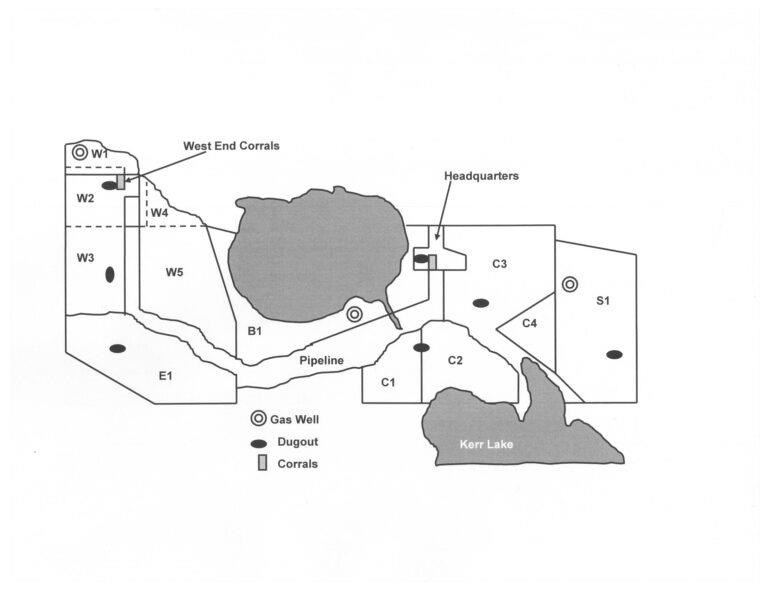LAC LA BICHE - The Lac La Biche Agricultural Services Board is still mulling over their next steps in a dispute with the Lakeland Forage Association over the management of a grazing reserve in the southern part of Lac La Biche County.
In his report to council on April 8, Ward 6 Coun. Sterling Johnson said the LFA is “shutting out our residents in our own county from the grazing lease” and said he expected to be coming back with a requested motion in the future.
According to Johnson, two members of the Agricultural Services Board and the County fieldman attended the LFA's annual general meeting and "basically they have no interest in sharing any of their grazing lease with Lac La Biche County."
Johnson did not return follow up calls from Lakeland This Week.
The LFA manages the Olympic Grazing Reserve, located on the north shore of Kerr Lake, west of Highway 36 in Lac La Biche County and just north of the border with County of Smoky Lake. The reserve includes roughly 2,000 acres of grass and forested pastureland, which is leased from the province.
Neil Cory is one of the founding members of the LFA and continues to sit on the board of directors. He said after the Olympic Grazing Reserve was established in 1985 the LFA received a provincial grant to fence the perimeter with barbed wire fencing, and a federal grant to create a windrow to seed with grass. They now employ a grazing reserve manager who checks on the animals several times a week and moves cattle through the different pastures.
“It’s all rotationally grazed there, so the cows eat the grass and then you move them to the next pasture and you leave that pasture to rest for 40 to 60 days before you let them back on it, and then your production is probably a third to a half more than if you leave them on the same area,” said Cory.
According to Cory, the number of cattle being pastured there each summer is determined by a provincial range agrologist, who factors in both the amount of forage available to be grazed and the non-grazed portion which needs to be carried over from year to year in order to maintain the ecological health of the area.
“It’s a combination of the number of animals and days of grazing. We’re at about 400 animal unit months up there, or 400 heifers we can put out there, and they can be there for about 100 days,” said Cory.
While the allotment is determined by the province, the decision of whose cattle can be pastured on the grazing reserve rests with the LFA.
“Anybody that has had an allotment has priority, so they can reapply and then if we have any extra space we open it to the other people,” said Cory.
According to Cory, the LFA received 12 applications from Smoky Lake, and one each from Bonnyville, St. Paul, and Lac La Biche in 2025.
“But we didn’t have any openings, because everybody that was on from last year reapplied,” said Cory.
In a letter sent to the M.D. of Bonnyville and the Lakeland Agricultural Research Association last summer, Lac La Biche Mayor Paul Reutov said the county is “troubled by the disproportionate allocation of producers allowed to utilize these lands and currently only one Lac La Biche County resident holds a position despite the land’s location being within our County. The lack of turnover among grandfathered permitted users from other municipalities under the Northern Range Enhancement Project pasture system exacerbates this imbalance.”
Cory defended the grandfathering system, saying “if you don’t do that and you have to put your name in the pot every year and you don’t have continuity, pretty soon nobody will be there because everybody will secure pasture somewhere else.”
In the letter, Reutov went on to ask the M.D. of Bonnyville and LARA to help establish “a fair system.”
The LFA is independent of both the M.D. of Bonnyville and LARA, although Cory noted the LFA does hold one seat on the LARA board because “Lakeland Forage took the money that we had out of our account and funded LARA to start with,” when the research association was founded in 1991. Now, LARA focuses on research and services on crop farming and environmental science.
Lac La Biche cut $60,000 of annual funding to LARA in a split vote in June 2024, citing a recommendation from their Ag Services board.
According to Cory, Lac La Biche County hasn’t given a dime to the grazing reserve since the early 1990s.
“And we’re paying taxes to the County, and we pay fees to the province. It’s not free land,” said Cory.



